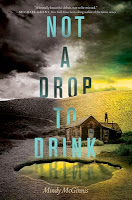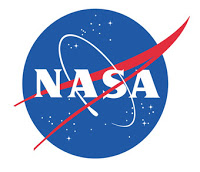There are quite a few post-apocalyptic stories these days, but yours has an incredibly unique twist. What inspired you to write about about water of all things?
The idea of a water shortage is something that sounds ridiculous – how could we run out of water? But, unfortunately it’s not that far out. I watched a documentary called BLUE GOLD which planted the seed of an idea. I went to bed that night ridiculously grateful for the small pond in my backyard. I dreamt about teaching a young child how to operate a rifle to help me protect the pond. I woke up knowing I had a novel there.
Lynn is a very willful main character. Yet at the same time, she still retains a sense of empathy. What was your favorite thing about writing from Lynn’s perspective? What surprised you about her?
Lynn is very tough, but that doesn’t mean she’s cold. She has to learn how to be not only a survivor in a brutal world, but also a human being. She was raised entirely by her mother, and had never even spoken to anyone else in her life, so there are some things she’s completely unaware of, like humor or flirting. What surprised me about her was how quickly she realized she couldn’t make it alone – protecting the pond, harvesting food, gathering water and cutting wood – without trading labor with her neighbor Stebbs once Mother is gone. She isn’t *happy* about admitting that, but she’s put common sense above pride, and I was glad I didn’t have to waste pages talking her into it.
I’ll admit it – next-door neighbor Stebbs was my favorite character. His wry humor provided a wonderful counterpoint to Lynn. What was it like developing the side characters of NOT A DROP TO DRINK?
Here’s where I admit Stebbs is my favorite character too! Man, I love that guy. The best thing about Stebbs was that I didn’t have to develop him at all – he simply was, from the beginning. Any time Stebbs walked into a scene, he owned it.
Lynn and her mother have a complicated relationship. They’re very close, but combative at the same time. How did you go about creating Lynn’s family life?
It was hard to imagine what teenage rebellion would look like when the only person you’ve ever met is your mother! I knew like all teens Lynn was going to question Mother’s choices at some point, but they’ve lived a life where Mother’s choices have kept them alive for years. Lynn literally owes her life to Mother, many, many times over. The sacrifices that Mother has made for her are without count, yet Lynn’s still going to wonder if there’s another way at some point. She couldn’t idolize Mother, yet she couldn’t question her overly — obviously the woman knew what she was doing. It was a fine line, but I think Lynn could alter some of the perspectives Mother had taught her without losing respect for Mother.
One of my favorite things about the book was the vivid struggle for survival. The dangers, human and environment alike, felt very real. What research did you do for this book? Did you draw from any real life experiences?
I did do some research, mostly about the very real threat of water shortage and cholera. One thing that I needed was a way to purify water without using any technology, and I was lucky to have remembered an article I’d read years ago in a National Geographic issue regarding the SODIS method. Using plastic bottles and the suns UV-A rays, you can get clean drinking water in 6 hours. Nice, huh? In the realm of real life experiences I can say that I didn’t need to research growing and canning your own food, or about rifles. These are both things I’m familiar. And, much to many people’s surprise, I also didn’t need to research how to field dress (gut) a a deer. I know how.
You really didn’t pull any punches with the story. There are some tear-jerker moments, including quite a few I didn’t expect. How did you decide this was the story (gritty tragedies and all) you were going to tell?
That’s the thing about any story I write — I’m not actually writing it. All my stories write themselves. I’m just a conduit. One moment in particular (involving Neva) I wasn’t expecting either. It happened and I pulled my hands away from the keyboard and said, “What did you just do?”
What are you currently working on? Any future projects for us to be excited about?
Right now I’m working on a revision for a Fall 2014 release from Katherine Tegen Books, and I recently signed a contract for two more YA novels with Katherine Tegen slated for 2015 and 2016. So, I’m pretty busy!
As this community is All for One and OneFour KidLit, we’d love to know two or three books that inspired you as a kid!
I loved A Wrinkle In Time (the entire series), and The Black Stallion books. I read them obsessively.










![DDF13_AllBooks_500x500_02[2].jpg](https://images.squarespace-cdn.com/content/v1/5ce1ed7930872600016b6a34/1559100632515-SIUU04OPFAQZIE1QVOV2/DDF13_AllBooks_500x500_02%5B2%5D.jpg)








